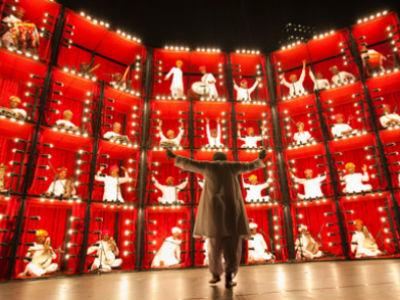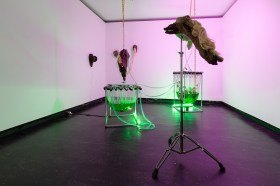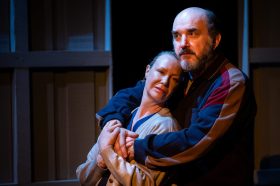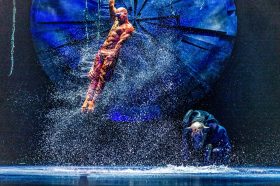I read Esther Anatolitis’ view of arts festivals with considerable interest. As a former director of the Fringe Festival it isn’t surprising that she feels there can never be too many festivals. There is a great feeling of energy around the Fringe Festival, hundreds of shows, thousands of performers, visual artists, techs, directors and producers, crowds of young arts lovers going to events across the (inner) city. But it’s one thing to be in a funded environment (i.e. the organizer) and quite another to be a venue or performer doing their damndest not to go under in a sea of performance created debt.
My view is that of the independent venue, and the independent (and mostly unfunded) performers. For us, festivals tend to suck the oxygen out of the air. Try getting media coverage for a production during the Comedy Festival (sponsored by Fairfax). Try getting an audience during Melbourne Festival (with virtually no hope of print media coverage of any sort or perhaps a grudging review from an overloaded critic).
While Festivals make politicians feel good (all those free tickets and priority seating at grand events) they tend to depress those of us who don’t quite fit the festival mode, who just want to present good theatre and build up loyal audiences. Take a look at the numbers of shows giving away tickets on various websites or half tix every day of the week and it becomes obvious just what a battle making theatre can be – in a city that prides itself on its arts loving audiences.
For those of you who don’t know fortyfivedownstairs, this is an in dependent, not for profit theatre and gallery which has now been in existence for over ten years. We charge rent for the space plus expenses and have a small number of private donors who help keep the doors open. One of my passions is new Australian work (there hasn’t been all that much of it on the mainstream stages since we began in 2002) Unlike the mainstream theatres we have presented many works by Australian women writers – Patricia Cornelius, Kit Lazaroo, Dina Ross, Rachel Berger, Linda Jaivin, Moira Finucane & Jackie Smith, Noelle Janaczewska, Lally Katz, Bagryana Popov
But over the past decade it has become a lot tougher as yet another festival emerges. Let me take you through the scenario: companies, writers and directors approach me to present a season at fortyfive and we start to talk about timing: It turns out that March/April is out because of the Comedy Festival. Every second year Next Wave takes up most of another month, and now the new Cabaret Festival takes over in July. The Fringe cuts out three weeks in September/October for many companies, and as far as October and the Melbourne Festival is concerned, if you’re not in it, you might just as well take off overseas for a break.
So (hypothetical here) you decide you have to join in, if you’re not to stay shut for half the year. But you discover that the Comedy Festival wants you, but doesn’t really want you to compete for audiences with their own productions. And everyone knows that the Town Hall is the place to be if you’re to get any support from the Festival, beyond listing in the program. Many performers will approach us, but really as a fall back position in case they don’t get into the Town Hall. And then, if you do fill three slots a night, you discover that the venue isn’t marked on the map at the Town Hall – only their own managed venues have that privilege. The last year we had anything to do with the Festival (2009) I asked for one of the bright pink flags which I’d seen on other venues in Flinders Lane, so that people knew we were part of the Comedy Festival. But I was knocked back because (a) they were expensive (I offered to pay) and (b) they were only for Festival-run venues.
The situation with the Melbourne Festival is different, but can be equally tricky. Most recently we have proposed productions which have been accepted as part of the Umbrella program of the Festival. That means you have the prestige of being part of a really wonderful event but no funds are available to assist. In our most recent experience we proposed a season by New Zealand’s national Maori theatre company, Taki Rua, which has performed in many parts of the world, but never at a capital city festival in Australia. Apparently exposure in the Festival brochure is valued at $40,000 (page 38, half a left hand page) Despite several four star reviews, and audiences leaving the theatre raving about the performance, we lost some thousands of dollars on this production, something which an unfunded venue like fortyfivedownstairs cannot afford to do.
When I was a journalist, and an arts reviewer, I loved Arts Festivals, and during Comedy Festival I would go to three shows a night. At the Melbourne Festival I saw wonderful productions from all over the world, as one can do today. But looking now from the other (unpaid) side of the fence, I can also see that the proliferation and expansion of arts festivals can have an unintended, but sadly negative effect on the local performance scene. In these times there are limited discretionary dollars to go around and a huge amount of them are going to the Festival imports, at the expense of the local independent scene.
All those big festivals are underwritten to the tune of many millions of dollars by taxpayers. I don’t want to seem overly parochial but imagine what might happen if some of those millions were used to support local companies? We could be the Berlin of the Antipodes!





